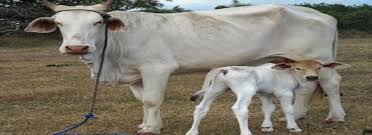Mother’s Milk: A Blessing for the infants
The hand that rocks the cradle rules the world! Rightly so, for a mother is truly the one that moulds her child from the moment of birth. Enabling the child with the best right from the word ‘Go’ should not be mere wishful-thinking, and in this age of information, the goodness of breast milk must be clearly understood, as a foundation for all round health.
A wealth of research has substantiated that breast milk is ideal nourishment for infants during the first year, as it is endowed with protective ingredients that guard against infection. Delicate and vulnerable to infections after birth, babies need to be nourished appropriately, which gives them immunity against prevailing illnesses.
Breast Milk: Infant’s formula for life-long health
What does breast milk contain that makes it so special for the child? Mother’s milk contains several types of immunoglobulins, found in great measure in the ‘first milk’ called colostrums. Among the available immunoglobulins – IGA, is specially equipped to protect the ears, nose, and throat infections. A vital antibiotic protection against bacteria such as staphylococci and E. coli is found in breast milk, called Lactoferrin, which is an iron-binding protein. Lysozome a key digestive ingredient is found in great abundance in human milk. Additionally, long chain fatty acids, called DHA and ARA which are crucial for the brain and retina is another active component of breast milk.
The versatility of breast milk is intriguing, as it changes in taste and composition throughout the day and during the lactation period, which gives it a distinct edge over formula milk Babies get exposed to different tastes, which is akin to a curtain raiser for the variety of foods to follow. Breast milk evolves during the lactation period, adapting to the baby’s changing needs at every stage of growth.
Dual Gains: Advantage Mother & Child
The repetitive suckling of the baby causes the release of Oxytocin from the mother’s pituitary gland. This hormone apart from triggering the release of milk from the breasts causes contractions in the uterus, which offsets potential postpartum hemorrhage. Breast feeding also assists in the uterus regaining normal pre-pregnancy shape. For the entire duration of absolute breast feeding, sans any formula food, the menstrual period is delayed, which helps in natural spacing of pregnancies.
Not widely known is the fact that the very lactation process is a metabolic activity that uses up nearly 200 to 500 calories per day, akin to a heavy exercise work out. This benefits the mother in maintaining optimum weight by losing the excess fat gained during pregnancy. Also ovarian, uterine and breast cancers seem to occur more with women who did not breast feed.
Apart from the nutritive and protective benefits, there is an intangible blessing of breast milk. The branch of psycho-neuroimmunology has demonstrated the profound psychological factors that have a direct bearing on the immune system. The very act of nursing a child close to the bosom fosters the bonding between mother and child, enveloping the child in a unique warmth and security which exerts a positive psychological influence on the child, strengthening the immune system.
Breastfeeding comes with economic advantages as well. Certainly cost-effective as compared to formula milk, it assists in preventing medical bills by equipping the child with the potential to fight infection later in life. Further, when a mother breast feeds, Prolactin, which is the milk producing hormone, also promotes a feeling of calmness in the mother, reduces anxiety and prepares her for the labor of love.
It also pays to know that children who have been exclusively breast-fed during the initial three months of their lives are 34 percent less likely to develop juvenile, insulin-dependent diabetes as compared to children on formula milk. Breastfeeding is also known to reduce the risk of childhood cancer. It was also found that breast-fed children appeared more secure and self-assured as they grew, which is a key indicator of mental well-being.
Storing Breast Milk
It is ideal to use glass or hard plastic containers with airtight lids to store expressed milk. Special freezer bags to store breast milk are also available. It is equally important to label the containers with the date when the milk was expressed, because breast milk can be stored in the refrigerator for two days before use, after which it should be frozen.
Breast is the Best Bet
A world of research has shown the ethereal bond, born out of the act of nursing a child, considered so overwhelming and greater than any human contact. Further, researchers articulate that when a mother holds her child to her breast, she feels an overpowering psychological experience, which surpasses even the bond of carrying the child in the womb. Breast feeding sows the seeds for a life-long bond between the mother and child and all round health for the infant in the years to come.
Compiled & Shared by- This paper is a compilation of groupwork provided by the
Team, LITD (Livestock Institute of Training & Development)
Image-Courtesy-Google
Reference-On Request.
Mother’s Milk: A Blessing for the infants

Mother’s Milk A Blessing for the infants


